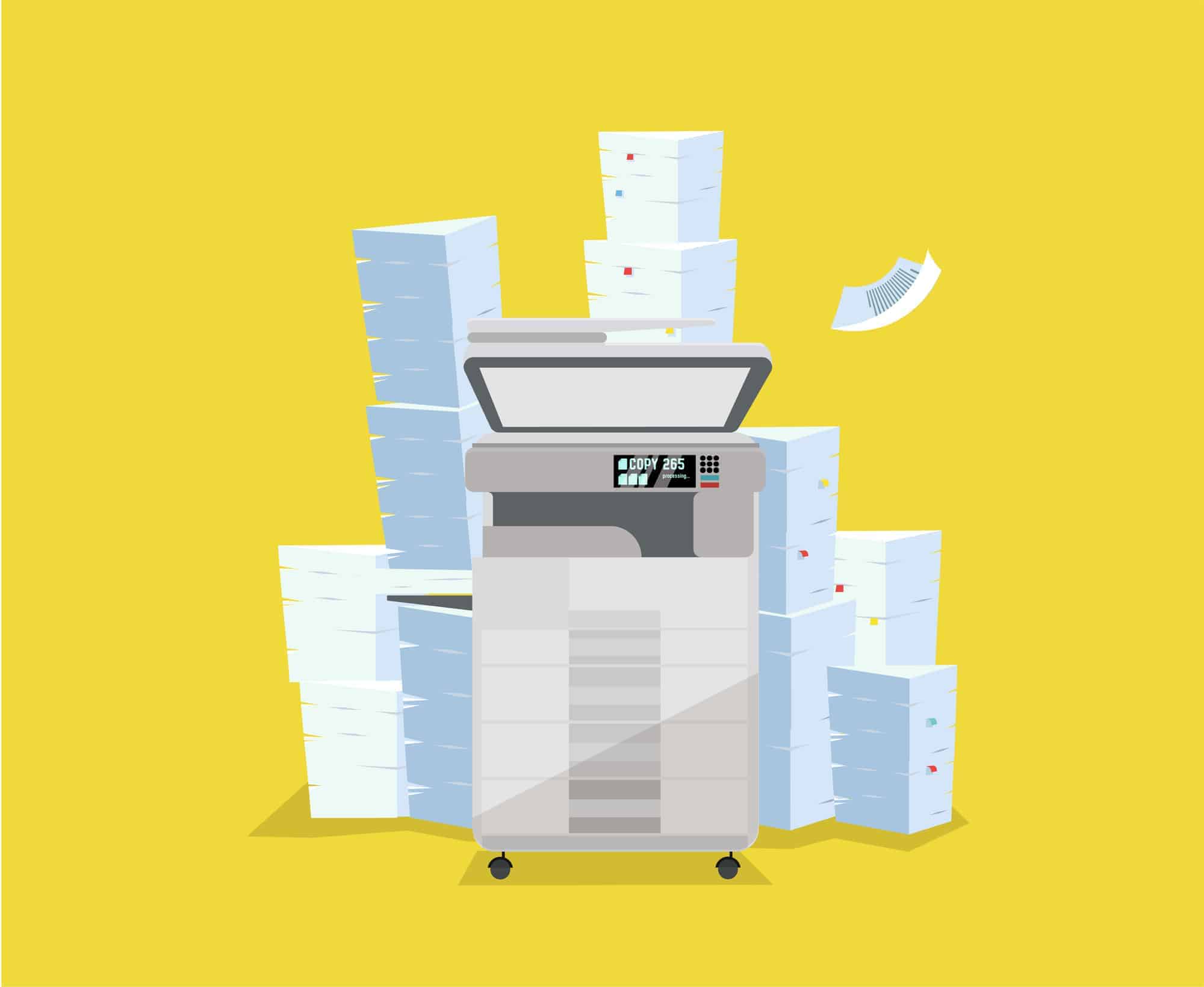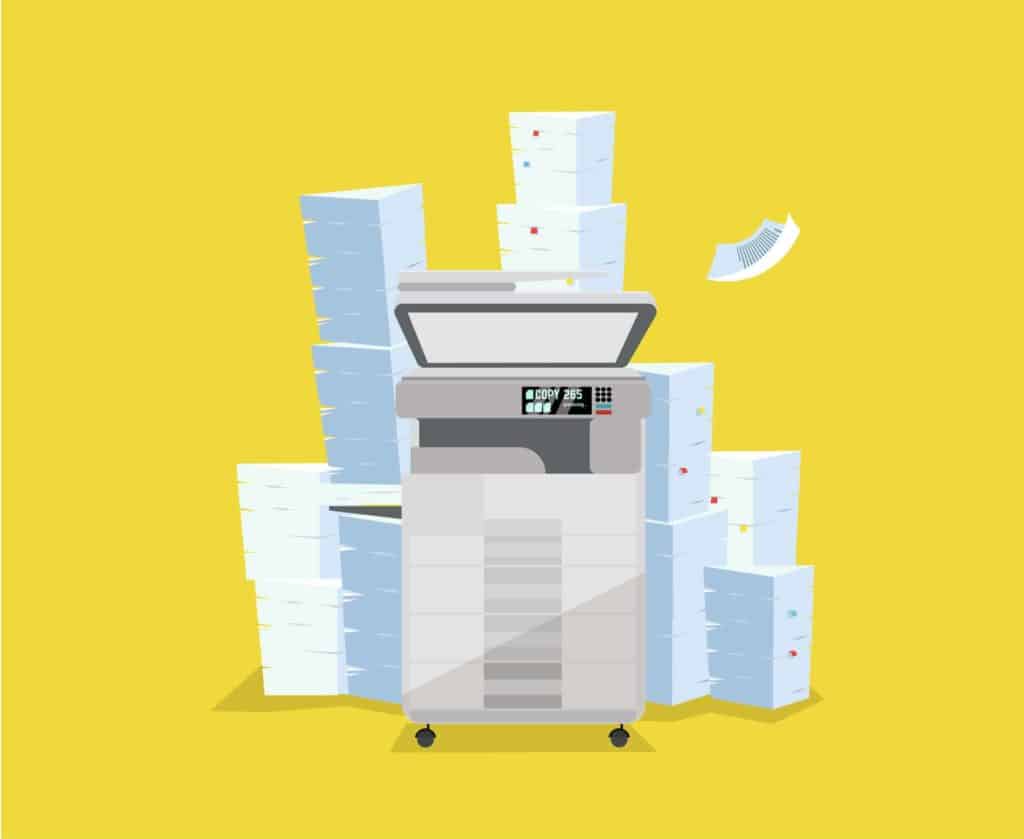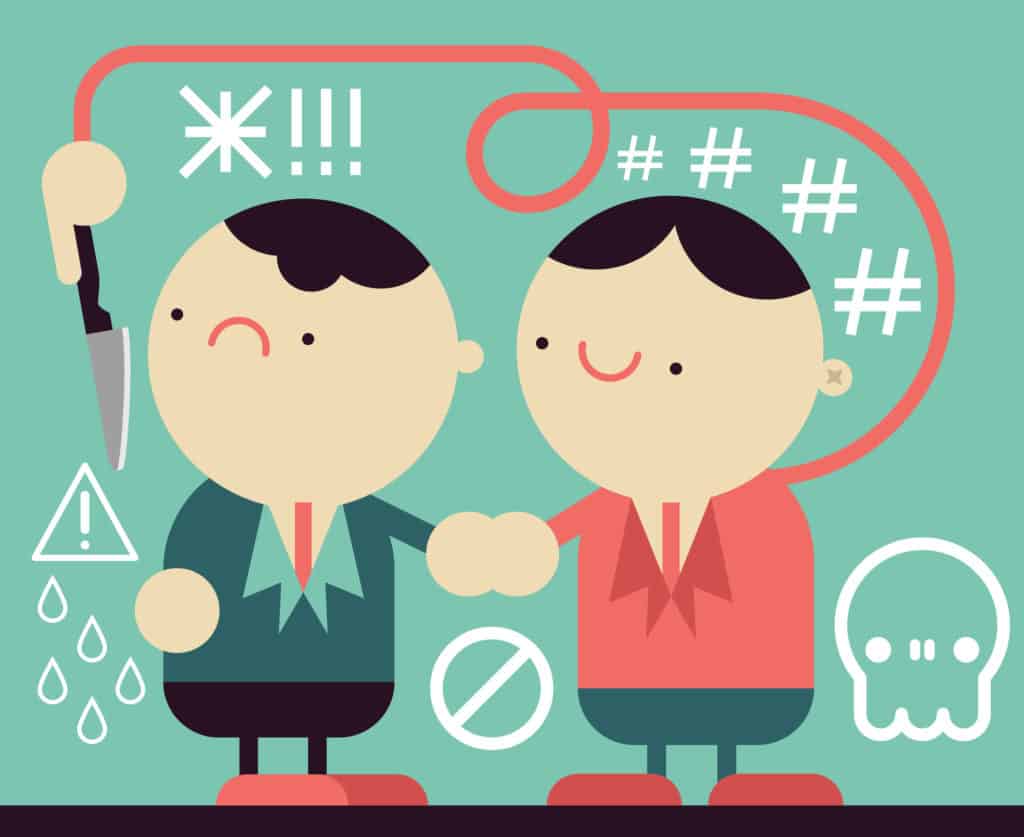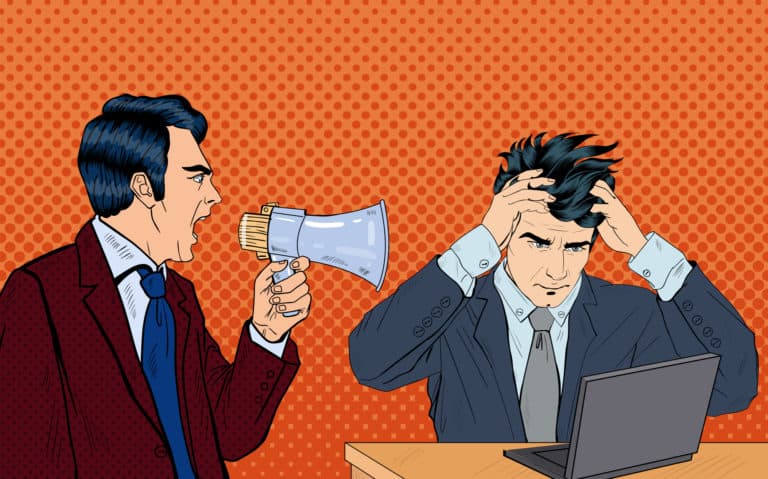Ah. Duplicate Content. A constant and never-ending topic of discussion that divides families, sows the seeds for Code 187s (Murder Death Kill), and remains responsible for more migraines than Kanye West’s latest album *shudder*.
The internet is full of contradictory information in regards to duplicated content. Some say that Google’s algorithm bots will hunt you down for sport. In contrast, others claim that plagiarism is nothing to be concerned about. It’s certainly not dangerous or liable for court action or anything like that. In fact, it’s free!
However, you need to remember that the internet is packed with keyboard warriors trying to sound like an authority voice. The sort of people who tell you to ‘shoot for the moon’, only to return after your first attempt at something fails, and then point out that the moon’s diameter is 3475km – and you couldn’t have messed up more if you tried.
More Blogs From Our Writers
TikTok: Should I Accept The New Kid On The Block?
Why Core Values Are So Darn Important
Why Bad Content Is Worse Than No Content
We are here to help alleviate all this madness. In the SEO world, we have a firm grasp of how ‘content is king’. You can have the most excellent SEO aspects imaginable, but if these SEO attributes adorn content that is rotten to the core, or stolen, then you’ve effectively wasted your time. Like getting a haircut on route to the guillotine.
Struggling with the concept of what constitutes duplicate content? Heard of syndicated content but not sure about it? Worried about penalties? Concerned about dolphins taking over the earth? Don’t worry. We’ll help you with some answers.
Why You Are Probably Reading This…
You’ve probably heard someone talk about the dangers of duplicate content, or had someone view your website and explain that your content is duplicated.
Perhaps you’ve stumbled across this article, and now you’re panicking due to the large number of duplicated pages your website has. Maybe you’re reviewing your site and clocked that each service page is eerily familiar.
Whatever your exposure to duplicate content, there are a few things that you need to know. Regardless of whether your duplicate content is deliberate or accidental, it must be handled correctly.
So, let’s dig deeper and tackle your fears while trying to avoid upsetting our Dolphin overlords. Did I mention how much I like tuna? Tuna is amazing.
What Is Duplicate Content?
All websites are at risk of duplicate content issues, and the threat that poses to SEO campaigns.
Boiled down, duplicate content relates to content that is either identical or 99% similar to other content.
If an SEO Expert or a Copyrighter uses the term ‘Near-Duplicate Content’, chances are they’re referring to content that has only slight minor differences from other material.
While certain aspects between the two sources may have been altered, if the content has been deemed ‘near-duplicate’, then you still have an issue on your hands.
Duplicate content is split into either the ‘internal’ or ‘external’ camp, where ‘internal’ duplicate content takes from multiple sources on the same website, and ‘external’ where numerous domains have the same page copy (and are indexed by search engines).
Both ‘Internal’ and ‘External’ duplicated content can be ‘near-duplicate’ or an exact match.
Isn’t This The Same As Plagiarism?
Not exactly, although there are similarities.
Plagiarism is more about stealing, or using content created by someone else and masquerading it as your own. Duplicate content refers to the same content set being displayed on multiple web pages.
In most cases regarding duplicate content, it’s the website creator placing copied text from their own source on two or more pages. Plagiarism is different, and much more severe.
One big difference between plagiarism and duplicated content is – drum roll, please – citation. Some people seem to think that crediting the source no longer makes it duplicate content. However, the likes of Google will consistently rank the cited source with higher authority.
Citation is definitely the legal way to operate, though. Plagiarism is defined mainly by ‘not offering citation to the original source’. In layman’s terms – it stops being plagiarism once you state (for all to see) the original author and provide a link to the original publication.
Just to confuse matters, even with citations, Google will classify the content as duplicated content. Does your brain hurt, yet?
Is Duplicate Content Bad For SEO?
Here’s where we bust an urban myth. And it’s not about how Flipper actually ate Elijah Wood after the cameras stopped rolling.
Officially, as stated by Google, you are not penalized for duplicate content. That’s contrary to what most SEO people will tell you (often announced following a deep breath and a prolonged ‘actually…‘).
However, don’t get all smug yet, as Google has a sneaky way of making sure your duplicated content doesn’t reach the internet-surfing masses.
What Google likes to do, besides conversing with the blood-thirsty Dolphin Czar, is filter identical (and near-duplicated) content out of the search results. So, while you aren’t penalized per se, the filtering process is just as harsh.
This action has the same outcome and impact as being penalized. You lose the high rankings that your web pages once had, and audiences aren’t directed to your content. Effectively, you’ve got some dead pages that have been a complete waste of your time. Very well done. Give yourself a fish.
Why is Google so petulant and difficult? It’s best to remember that Google has to serve a purpose. The search engine giant has to follow its mission statement.
Contrary to the belief that Google’s mission is to take over the world and join the Dolphin fraternity of Atlantis, before selling humanity as slaves to the highest bidder, Google needs to provide safe, secure, trustworthy, accurate, and timely results. That’s its purpose.
Therefore, if you have lots of duplicated content, Google will assume you are a mouth-breather with a peanut for a brain. It will then systematically steer people away from your site, akin to how incoming investors to the UK are told to avoid Prince Andrew.
All of this larking about put to one side, duplicate content confuses Google and forces the algorithm bots to choose between your identical pages. The aim is to discover which page should rank for the search results, and which pages should not.
And, because Google acts like a spoiled member of the Trump family, you can’t tell which page it’s going to pick for display.
Chances are, it’s not even going to be the original source of your duplicated content. In short, you can avoid this by writing some fresh content, or tweaking your existing content enough to make it different.
Sometimes, if the bots get really confused, Google just won’t bother showing anything from your website. Not even bribery can get you out of that one.
How Does Duplicated Content Hurt SEO?
Let’s keep this short and sweet. Duplicated content confuses Google to the extent that it just shuts down on you. Like trying to teach George W. Bush anything to do with maths.
As the duplicate content appears in more than one place, search engines don’t know which version to include or exclude from your search term.
In the same fashion, search algorithms can’t fathom whether to direct the link metrics to one page (the preferred/primary source), or separate them between multiple versions.
This leads to massive confusion as to which versions of your content should rank for the query results.
So, while it’s not really SEO penalization as we know it, there is an argument that you can inadvertently shoot yourself in the foot by copying your own content and presenting it multiple times. Even if your content isn’t malicious.
Copied content is the worst offender, but there are a couple of technical aspects to watch out for, too. These can also demonize your website and result in a decreased organic SEO presence.
Ready to get technical? Do as the Dolphins say, goddamnit.
Deep breath. Here we go.
You have seen HTTP on the front of your URL, right? Well, if your site has separate domain versions of the same content, you may also have HTTPS locked on to the beginning of your URL chain.
This is feeding Google two versions of your website, and therefore all the content is duplicate content. What an achievement. Give yourself a fish.
The same story applies to separate versions where your website functions with both ‘www.yourcompanyhere.com‘ and ‘yourcompanyhere.com’, or anything with an ‘http://yourcompanyhere.com‘ and ‘https://yourcompanyhere.com‘.
This is all creating multiple versions of your content, and Google will be waiting – with a blood-stained rolling pin – for your next slip up. Kiss goodbye to your hard-earned rankings.
Furthermore, there are variations on URLs to worry about. That probably doesn’t mean much to those who don’t live in the Matrix (ace film, by the way, but not as good as Free Willy. This was a decision made of my own free will). But it’s worth paying attention to this question:
Do you have a printer friendly version of your website?
And is it indexed?
If you do, and the printer-friendly version is indexed, then you’ve got duplicate content issues. Click tracking, analytic code, and session IDs can also cause duplicate content problems.
And you thought this stuff was easy.
What About Syndicated Content?
Thinking of using syndicated content as part of your SEO campaign? Just get out of our website. Right now.
In our humble opinion, and certainly not dictated to us by Snorky the knife-wielding Dolphin, content syndication can lead to various problems – which can negatively affect your SEO.
Content syndication is when you publish content that’s already been posted by others. Suppose you agree to have someone else re-publish your content. In that case, the concept is one of reaping the benefits from their efforts (extra backlinks, authority rankings, etc). However, if you don’t agree to it and someone takes your content – that’s plagiarism/stealing.
Suppose the content partnership isn’t set up correctly when dealing with external sources, then Google can allow your ‘content sharer’ to rank higher than you.
It gets incredibly complicated, and if the citations aren’t done correctly, then Google will penalize the other party.
If it happens often enough, and Google thinks you are up to something dodgy, then your rankings can be affected, too. It can often become very messy.
We would not advise that content syndication should be taken lightly. There are ways to go about content syndication without feeling Google’s wrath, but if you don’t know what you are doing, then you are on a path of destruction. Want some help? Get in touch with us.
How Do I Avoid Duplicated Content?
I’m glad you asked that. There are many ways you can avoid duplicate content issues. In the same mantra that there are various ways in which you can hide a body. Isn’t that right, Snorky?
For starters, ensure each page has a unique page title and a bespoke meta description. Give each page a tailored set of headings (H1, H2, H3, and so on), and install some image tags, too.
While these attributes take up very little in the way of word count, it can make all the difference when Google’s search spiders come a-crawlin’.
As for the actual content – don’t copy and paste; write some fresh stuff! It takes time, I know, and time is the enemy of most businesses. There simply isn’t enough time in the day – especially to facilitate fresh/new content, right?
WRONG. Oh, so wrong. In fact, it’s so wrong, it’s almost right. But it isn’t right.
It’s wrong.
If you want to rank and avoid the pitfalls of SEO, you need to get yourself some unique content.
That can often be challenging, especially if you are having to craft product descriptions, location landing pages, or pillar pages for a service. Yet, if you follow our advice, you will cut out the attempts to cut corners and save yourself from the nightmarish SEO situation that awaits you.
As for the Dolphins, just remember that they can’t use a computer. But they can take over your town.
In all aspects – you have been warned….
















